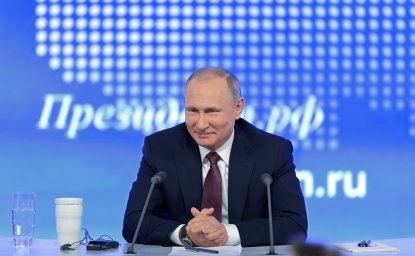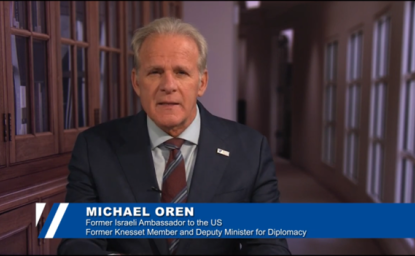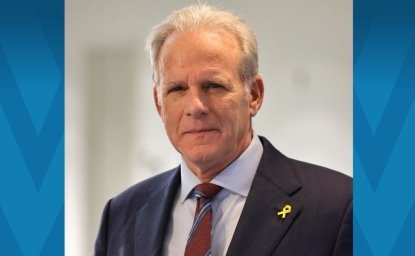The Latest
India expects:
- That a full-fledged partnership with the United States would include technology transfers and arms sales.
- India rigidly opposes outside efforts to ease tensions with Pakistan
Pakistan expects:
- The United States to pursue areas of security cooperation based on genuine shared interests.
Q: What is the greatest challenge facing the next administration’s relationships with India and Pakistan?
A: President Trump’s challenge with India is to take a strengthening bilateral relationship to its logical next phase, and that is full-fledged strategic partnership. This will be difficult not because Trump has no desire to do so; he has in fact expressed strong support for U.S.-India relations. The challenge lies in a definitional disconnect. While both countries claim to seek a strategic partnership, they have failed to agree on what one should look like. In a very general sense, Washington and New Delhi have different expectations about strategic partnerships. The United States emphasizes joint operations; India emphasizes technology transfers and arms sales.
Trump’s challenge with Pakistan is to help promote stability with a lighter footprint. Washington’s relations with Islamabad were destined for a downgrade regardless of the election outcome. A reduced U.S. role in Afghanistan, coupled with Washington’s deepening ties with India and growing U.S. impatience with Pakistan’s refusal to crack down on all terror groups on its soil, ensure a scaled-back relationship. And yet Trump will still confront many stability threats: militant networks, including those that target U.S. troops in Afghanistan; deep levels of intolerance that fuel extremism; and a state that regards some terror groups as assets, not dangers.
Q: What will President Trump need to do to manage these challenges?
A: The Trump administration should address the definitional disconnect associated with U.S.-India strategic partnership by sponsoring a series of high-level exchanges, featuring top diplomatic and defense officials, to find common ground on what should characterize U.S.-India strategic partnership, and how to get there. Admittedly, this will require ample investments in time and resources from an administration that will inherit many crises abroad. And yet, failing to reconcile differing views about strategic partnership could complicate efforts to move a critical relationship forward. Given the strong affinities Trump expressed for India on the campaign trail, there’s reason to believe he would support a time-intensive yet high-reward initiative for U.S.-India relations.
Regarding Pakistan, the key is to pursue areas of security cooperation based on genuine shared interests. These may include joint efforts to combat a rising ISIS and a resilient al-Qaeda in South Asia, and to target other terror groups that directly threaten the United States and Pakistan. Given his tough-on-terror position, Trump will support such a focus. The bigger question is how patient Trump will be with Pakistan so long as it refuses to crack down harder on terror. Increasing U.S. impatience with Pakistan will translate to less engagement and more tensions.
Q: How should the Trump administration approach India-Pakistan relations?
A: Relations between New Delhi and Islamabad, which plunged into deep crisis during the final months of the Obama administration, will likely remain dangerously tense over the first few years of Trump’s term. The prospect of another Subcontinental war between two nuclear-armed rivals is a nightmare scenario for Washington, which views stability as its chief interest in South Asia. Trump, however, should not offer himself up as a formal mediator, as he did several weeks ago. India rigidly opposes outside efforts to help ease tensions with Pakistan. It fears that external mediation would invoke the Kashmir dispute, which New Delhi views as non-negotiable. If Washington proposes mediation, its relationship with New Delhi could suffer.
Instead, the White House should use active yet quiet behind-the-scenes diplomacy to ensure that temperatures on both sides do not rise dangerously high. This entails, during crisis periods, working the phones to warn both capitals against military escalation. And it entails, during calmer periods, urging the two sides to hold regular dialogues on soft issues—from trade cooperation to educational exchanges—to promote goodwill. What remains to be seen, however, is if Trump’s lack of foreign policy experience constrains his ability to oversee such delicate diplomacy.
Guest


Indo-Pacific Program
The Indo-Pacific Program promotes policy debate and intellectual discussions on US interests in the Asia-Pacific as well as political, economic, security, and social issues relating to the world’s most populous and economically dynamic region. Read more

Explore More
Browse Insights & Analysis
What Does the World Expect of President-elect Trump?

Kremlin Frames Trump’s Negotiations as a Russian Victory

Former Israeli Ambassador to the US, Michael Oren, Named Wilson Center’s Joseph B. Gildenhorn Fellow



